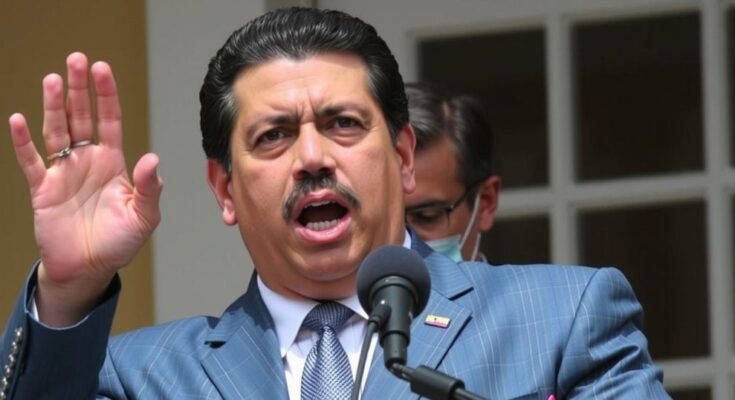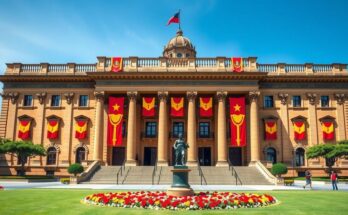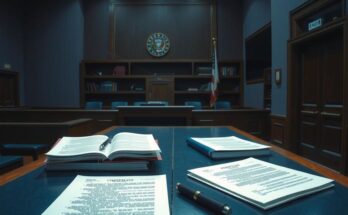Nicolás Maduro was sworn in for a third term as Venezuelan president amid credible claims of election fraud. The opposition, led by Edmundo González, asserts he won the election, prompting protests and international sanctions against Venezuelan officials. Maduro’s government faces substantial criticism for its repression of dissent and lack of electoral transparency, raising concerns about ongoing political freedoms in the nation.
On Friday, Nicolás Maduro was sworn in for a third six-year term as the president of Venezuela, amidst substantial opposition protests and credible evidence suggesting that his opponent, Edmundo González, won the election. The heavily secured legislative palace became a focal point for both supporters of Maduro, who celebrated his continued presidency, and dissenters who rallied against what they viewed as a fraudulent election outcome.
In a combative speech during the inauguration, President Maduro accused opposition factions of attempting to disrupt the ceremony, which he framed as a “great Venezuelan victory.” He also criticized external forces, particularly the United States, for allegedly undermining Venezuela’s sovereignty, asserting, “I have not been made president by the government of the United States, nor by the pro-imperialist governments of Latin America.”
The opposition has maintained that they collected and verified voting tallies that indicate Mr. González received significantly more votes than Mr. Maduro, a claim supported by observers from the U.S.-based Carter Center. The election results have led to an international outcry, with calls for sanctions against Venezuelan officials involved in the electoral process.
In a broader context, the European Union responded with sanctions against 15 key Venezuelan officials, identifying them as contributors to the undermining of democracy within the nation. Protests escalated on the day of the inauguration, resulting in the detention of opposition leader María Corina Machado, who had previously been barred from running for office. Her situation garnered international condemnation.
The aftermath of the election has been marked by allegations of electoral fraud and violent suppression of dissent, with reports of numerous arrests and civil unrest throughout Venezuela. Maduro’s government has shown little transparency regarding the electoral process, with electoral authorities failing to provide detailed vote counts as has been customary in prior elections. This lack of transparency catalyzed mass protests and a severe governmental crackdown meant to quell dissent and silence opposition voices.
Maduro’s current term is slated to extend until 2031, leading to concerns over the continued decline of political freedoms and human rights in Venezuela. Amidst this turmoil, the fate of opposition leader González remains uncertain, especially as he has been threatened with arrest upon his return to the country from exile. The political landscape in Venezuela continues to be volatile, with significant implications for both national and international relations.
The political situation in Venezuela has been fraught with challenges over the past few years due to authoritarian rule and allegations of electoral fraud. Nicolás Maduro, who has held power since 2013, has faced ongoing opposition from several factions, leading to significant unrest and protests advocating for democratic reforms. The culmination of these events has been Maduro’s controversial third-term inauguration, which has been met with international scrutiny and calls for accountability amid claims of electoral misconduct.
In summary, Nicolás Maduro’s inauguration for a third term marks a pivotal moment in Venezuelan politics, characterized by widespread allegations of electoral fraud and a fierce crackdown on dissent. The international community’s response, including sanctions by the European Union and condemnation from global leaders, underscores the gravity of the situation. As Venezuela navigates this tumultuous period, the ongoing struggle between government forces and opposition factions may dictate the trajectory of democracy and human rights in the region.
Original Source: gvwire.com




